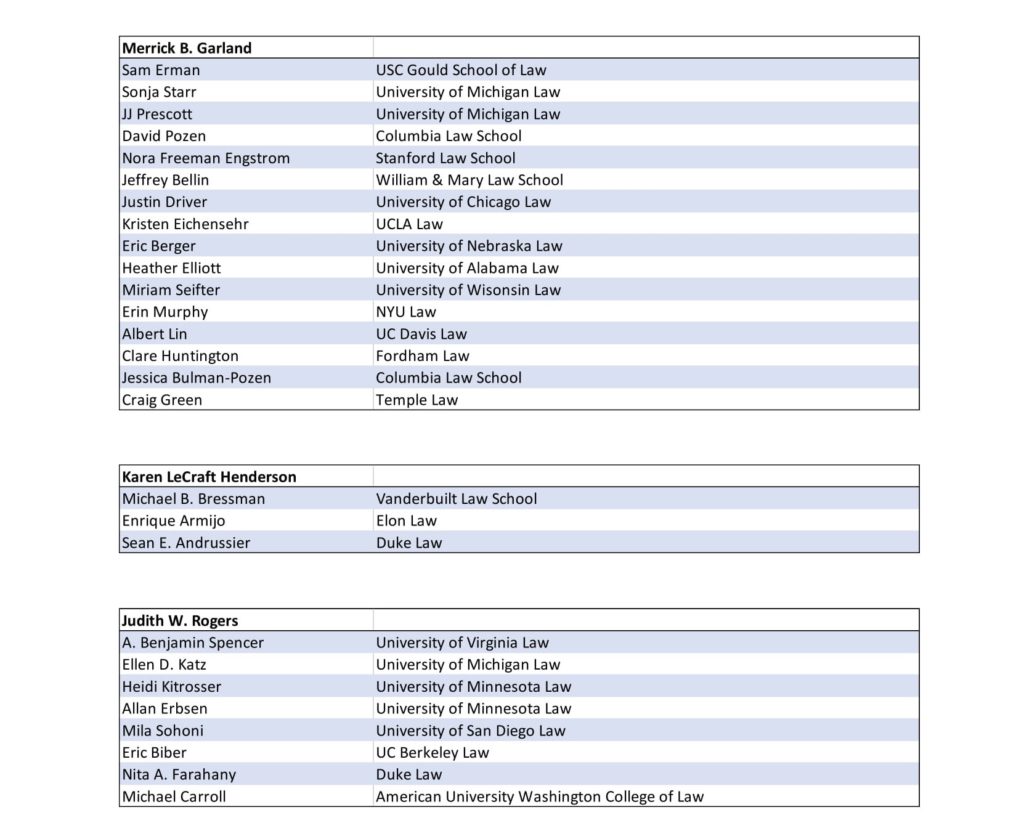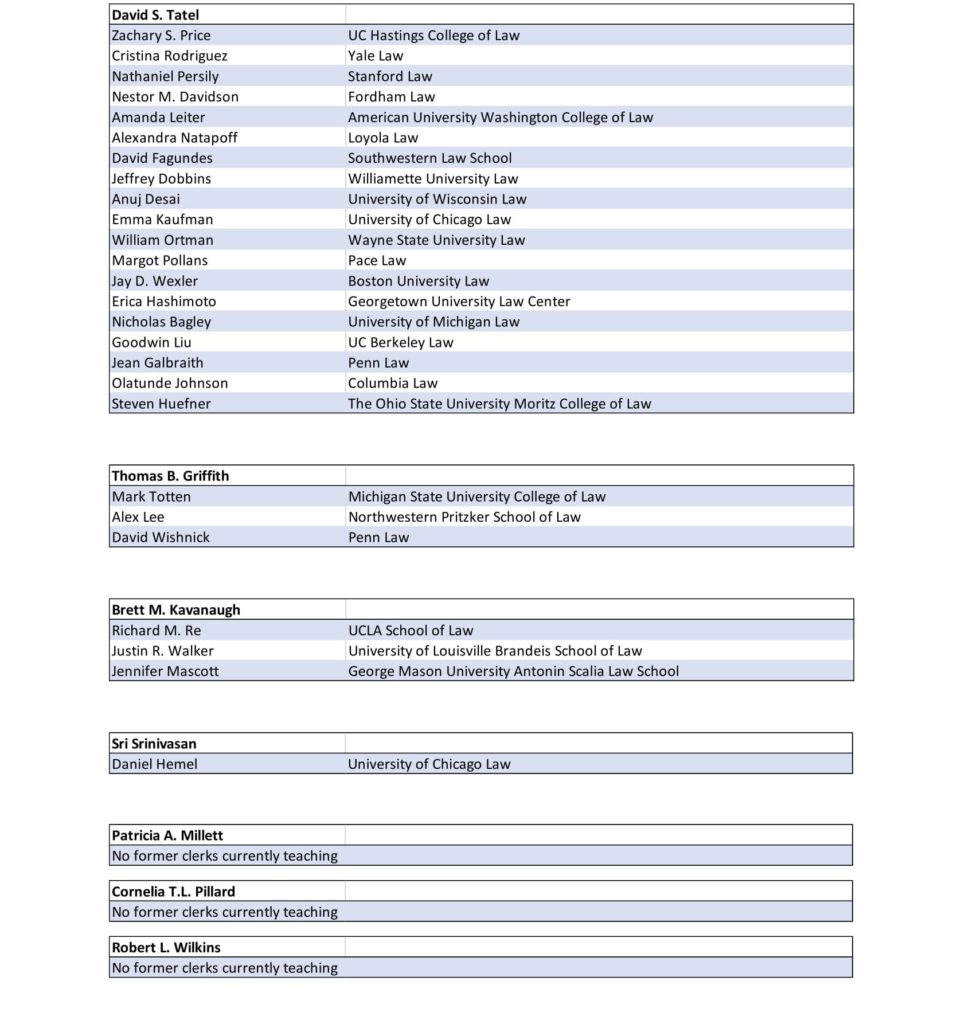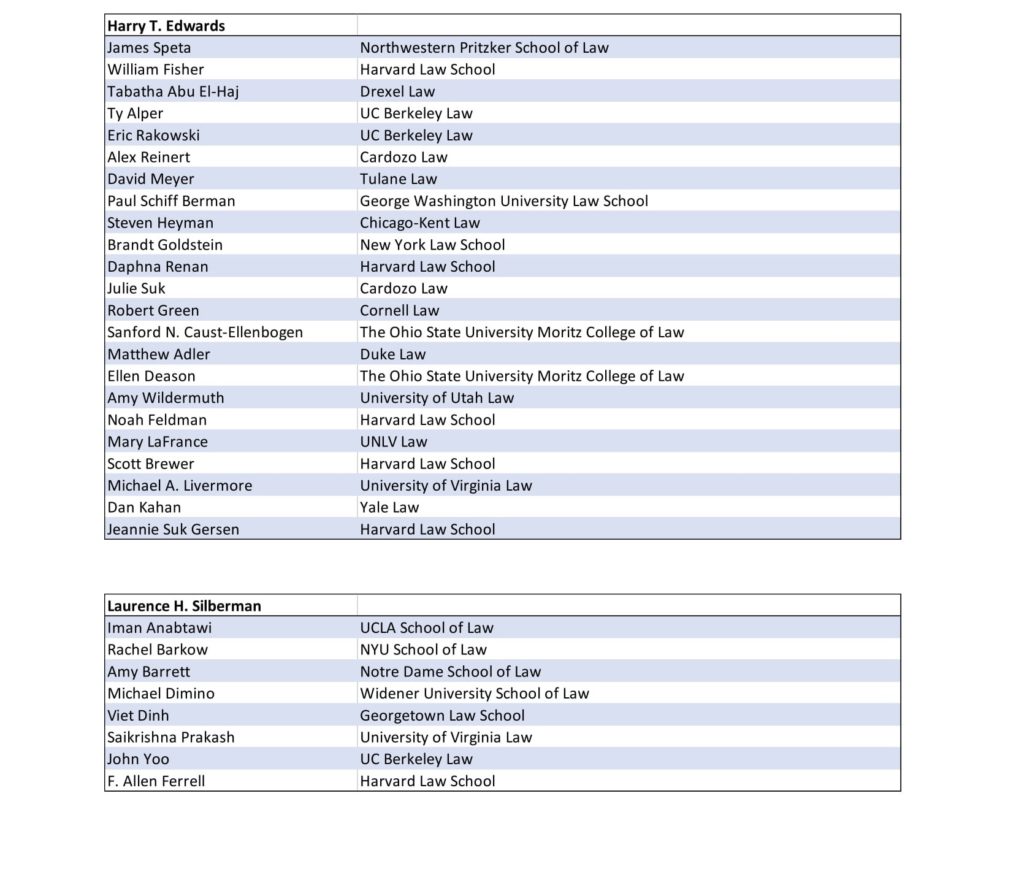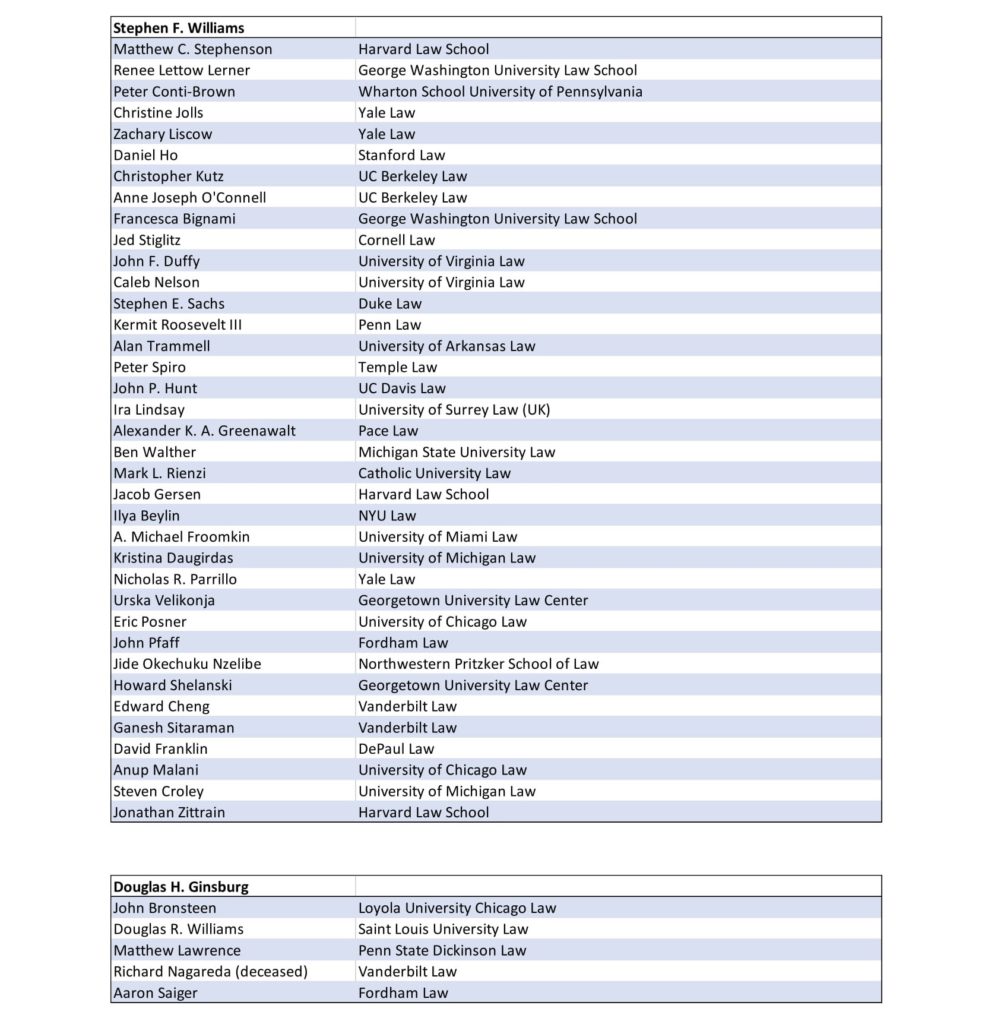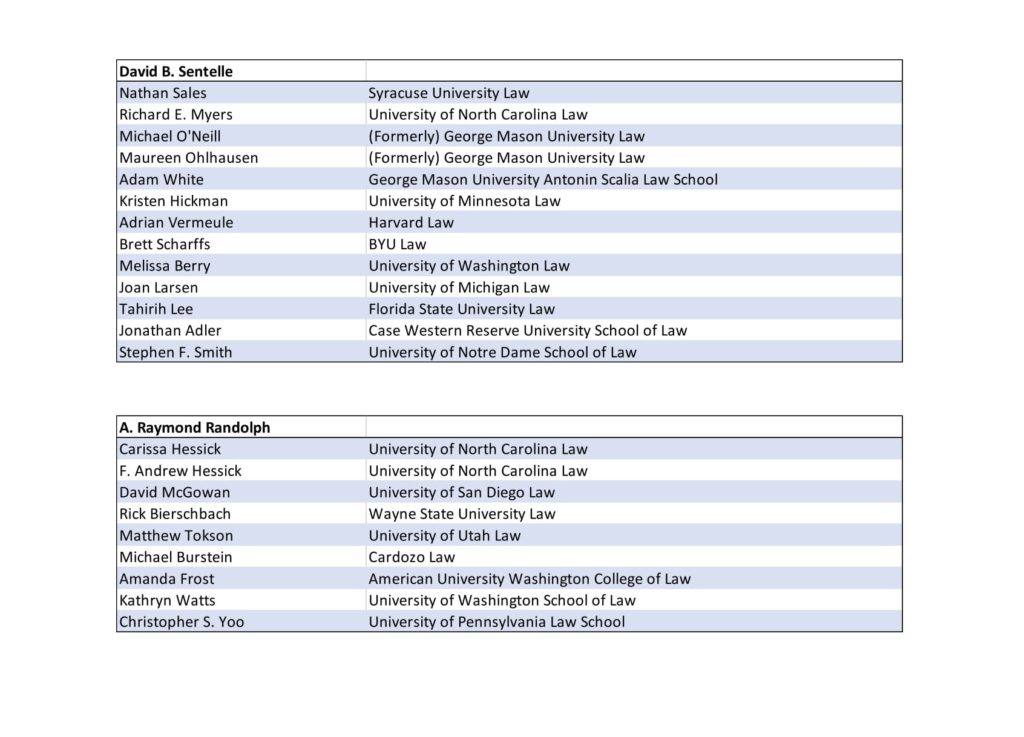D.C. Circuit Review – Reviewed: D.C. Circuit to Law Professor
Apologies. This post is another quick one — sono occupato.
A few months back my duteous research assistants* put together a list of D.C. Circuit law clerks who became law professors. Since then, they have kept at it. Although it also is no doubt incomplete, here is an updated list:
It’s a noteworthy list, especially if you study administrative law. It is also worth reflecting on how many slots in the academy — especially “admin law” slots — are occupied by folks with this credential. Obviously, I’ve benefited. And in fairness, I can see some reasons why law schools are attracted to this line on a CV. Even so, as a proud inhabitant of “fly-over” country, I’m happy to report that the world is larger than the nation’s capital. For instance, it is interesting — as reported by Abbe Gluck and Richard Posner — that judges outside of the D.C. Circuit may have more skeptical views of deference. Likewise, the fact that the D.C. Circuit doesn’t hear immigration cases is interesting; immigration law is a type of administrative law, yet it is not one that D.C. Circuit clerks generally are exposed to. Administrative law, moreover, may be different outside of D.C. even within a single agency and certainly when local governments are considered. It may be wise to expand the teaching pool.
Anyway, the D.C. Circuit decided four cases this week. Here we go.
In Utility Air Regulatory Group v. EPA, Judge Williams (joined by Judges Griffith and Pillard) addressed “another rule in a long succession of actions implementing Congress’s effort to restore air quality and visibility in certain national parks.” Certain “conservation petitioners” and various “power companies” (and the like) challenged the decision. This is a technical opinion but here is the punch line: “Because we find no merit in the conservation petitioners’ arguments and can afford no relief to the state and industry petitioners, the petitions are denied.”
In Orton Motor, Inc. v. HHS, Judge Wilkins (joined by Judges Tatel and Griffith) rejected a challenge to FDA’s determination that selling tobacco products “to a minor and … fail[ing] to verify age” were “separate violation[s] of [the] regulation.” Among other points, the Court reasoned that the FDA’s “guidance documents … [were] entitled to respect” under Skidmore.
In United States v. Powers, Judge Srinivasan (joined by Judges Tatel and Pillard) ruled against a criminal defendant. Powers pleaded guilty and waived “his right to appeal any sentence within or below the Guidelines range, unless he claimed he received ineffective assistance of counsel.” Powers received a sentence below the Guidelines range. The Court determined that because of his “knowing, intelligent, and voluntary” waiver of his right to appeal, it would not consider his procedural and substantive challenges to his sentence. Regarding the claim for ineffective assistance of counsel, the Court determined that “by waiting to present the claim until his reply brief, [Powers] forfeited it for purposes of this appeal.” (Attention #Appellatetwitter: There is an interesting discussion in this case about what issues can and cannot be presented in a reply brief.)
Finally, in Laccetti v. SEC, Judge Kavanaugh (joined by Judges Griffith and Wilkins) granted a petition for review of a disciplinary judgment against Mark Laccetti, an Ernst & Young partner. The Public Company Accounting Oversight Board investigated an audit. The Board refused Laccetti’s request to have an accounting expert present at the interview to assist the Ernst & Young attorney serving as his counsel; eventually, Laccetti was sanctioned. The Court granted Laccetti’s petition because the Board’s explanation was not reasonable. Among other points, the Board’s said it did not want to allow an Ernst & Young employee to “monitor the case”; that made no sense because an Ernst & Young attorney already was allowed to be present. In short, “[t]he Board’s explanation, even when oft repeated, is not logical.”
And that’s the week.
* Atticus Swett and Scott Balsmeier. They’ve been great and I appreciate all of their efforts.
UPDATE: We could have included Steve Menashi, a former Judge Ginsburg clerk who is currently on leave from George Mason. And if you’d like, here is a searchable list.
D.C. Circuit Review – Reviewed is designed to help you keep track of the nation’s “second most important court” in just five minutes a week.



